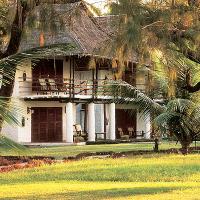[ad_1]
JOHANNESBURG – Hotel performance in Sub-Saharan Africa is expected to improve in 2018 following subdued performance in 2017, with the budget and midmarket segments showing the strongest demand fundamentals. This, according to Xander Nijnens, Head of Hotels and Hospitality Group for Sub-Saharan Africa at JLL. “Global investor interest is likely to increase, with a search for yield in a long global real estate cycle, as well as demand for platform investments in Sub-Saharan Africa. Despite high global debt liquidity, we expect financial leveraging to remain challenging in the region, while transaction volumes are forecast to continue their upward momentum,” he says.
Eight key trends are highlighted for 2018:
RevPAR growth to accelerate in 2018
With subdued economic growth in key markets, oversupply biting in many primary cities and select political instability, 2017 was a challenging year for hotel performance. Nijnens notes, “We estimate occupancy for 2017 at 58% to 60% which was in line with 2016, with ADR and RevPAR effectively flat year-on-year. In 2018, as GDP growth in Sub-Saharan Africa recovers to 3.2% (YoY), we expect stronger occupancy growth with RevPAR growth of between 3% and 5%, as occupancy picks up to above 60%.”
Midmarket segment to drive growth
Investment returns in the budget to midmarket segments are the highest in Sub-Saharan Africa due to the more stable local and regional demand base, as well as more sensible development and operating costs. JLL predicts higher investor interest and supply growth in these segments than any other supply segments in the region for 2018 and beyond.
Indian Ocean to remain top performing destination
Hotel performance in the Indian Ocean since 2014 has been excellent and investor demand for assets in Mauritius, Seychelles and Zanzibar is strong. “Investment returns have been driven by a combination of increased demand due to safety concerns and instability in competing resort destinations, improved airlift, and limited supply growth. We expect the Indian Ocean to be the top performing region in Sub-Saharan Africa in 2018 with aggregate occupancy rates remaining north of 75% and ADR growth of 6% to 8%,” says Nijnens.
Increasing conversion focus by global brands
As competition grows, owners are increasingly seeking out global brands to improve their distribution capabilities and market visibility. Many brands are now making key money and operator loans available to assist owners in meeting property improvement plans to allow them to meet global brand standards. JLL expects to see more conversions and franchising in 2018 in key cities for the global brands.
Platforms increase in value
“Developing out a portfolio of hotels in Africa to reach scale is tough, and this is driving interest from real estate investors, institutional investors, and global brands to acquire existing portfolios and platforms. As investors and operators seek scale in Africa, we expect to see demand for platforms to grow. In 2018, we should see a couple of platform deals supported by global M&A trends,” Nijnens notes.
Effective financial leveraging to remain challenging
2017 was a very strong year for African Eurobond issuance. However, with the spread over US Treasuries now at a three year low, the enthusiasm for sovereign issuance has not flowed through into real estate debt capital markets. Lenders into the continent remain conservative and continue to favour international branding and a strong track record. JLL does not anticipate that sentiment will improve considerably in the short term and 2018 will be another tough year for hotel lending, with the availability of debt limited and often expensive.
JLL forecasts USD500 million in hotel investment volumes in 2018
Transaction volumes have increased during the past five years, yet open market transaction volumes remain low compared to the broader growth in hotels as an asset class within the real estate sector. Nonetheless, JLL expects transaction volumes to continue their upward momentum with around USD500 million in transactions in 2018, an increase of 10% to 20% on 2017. Nijnens adds, “The maturation of hotel ownership should see an increasing number of owners recycling their capital into new hotel developments and in turn creating an opportunity for new capital to acquire existing assets in the hotel sector”.
Fresh global capital to assess opportunities
With the global search for yield in a long real estate cycle and the current mid-cycle rotation in mature markets, global capital is increasingly assessing opportunities in Africa. Growing Chinese influence in Africa and new politically motivated investors coming to the region should result in fresh capital looking at opportunities in the hotel sector. “We do not expect a flood of new foreign capital to enter the region, however, in 2018 we do expect these investors to ramp up their exploration of opportunities,” concludes Nijnens.
You can read more of the news on source
 Travelsmart
Travelsmart



